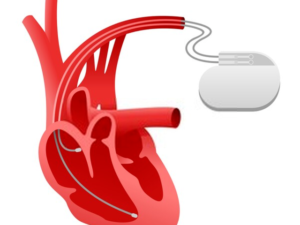Pacemaker Surgery
Pacemaker Surgery In Iran
Best pacemaker surgery surgeon in Iran
 More than 35.000 Iranian and foreign patients are going under pacemaker surgery in Iran each year. pacemaker surgery in Iran is on top of the middle-east regarding its skilled specialists and surgeons. Here are the best hospitals for pacemaker surgery in Iran:
More than 35.000 Iranian and foreign patients are going under pacemaker surgery in Iran each year. pacemaker surgery in Iran is on top of the middle-east regarding its skilled specialists and surgeons. Here are the best hospitals for pacemaker surgery in Iran:
- Treata Professional Hospital
- Gandi Hospital
- Moheb Mehr Hospital
Pacemaker surgery cost in Iran
There is a significant difference between the cost of pacemaker surgery in Iran and other countries. The most important factors for the low price of it in Iran are:
- A large number of pacemaker surgery hospitals in Iran.
- A large number of applicants for pacemaker surgery in Iran
Pacemaker surgery cost in Iran varies depending on the pacemaker surgery and the hospital. An average cost of pacemaker surgery in Iran is $15000.
Pacemaker surgery cost in Iran in comparison with other countries
This surgery costs $70000 in the U.S., $57000 in Europe, $10000 in Thailand and $17000 in Turkey.
Best pacemaker surgery surgeon in Iran
More than 70.000 heart surgeries are being performed each year in Iran. Experienced Iranian doctors with an excellent record are performing the operations.
One of the most important factors for choosing a good surgeon for pacemaker surgery in Iran is a doctor has done many pacemaker surgeries.
You can find the best doctors for pacemaker surgery in Iran on our website by following their different experiences.
Many patients travel to Iran for pacemaker surgery. One of the reasons for this matter is Iranian specialists and surgeons who have high surgery success rates.
- Low cost of pacemaker surgery in Iran
- Low cost of accommodation in Iran
- Well experienced doctors
- The high number of pacemaker surgery in Iran
Pacemaker surgery hospitals accordant with today's European standards are performing the highest quality operations in Iran. Another reason for pacemaker surgery in Iran is its lower cost compared to other countries.
How long should I stay for pacemaker surgery in Iran?
About Pacemaker Surgery
 The pacemaker surgery may have some risks like any other surgery, but patients can reduce the probability of risks if they do this surgery in a hospital equipped with special facilities and an expert medical team. The pacemaker consists of an electric circuit and a long-life battery. It is placed in the upper chest or abdomen and below the skin. The energy released from the battery turns into the electrical wavelength, which is guided to the heart muscle and causes the contraction. The wires help the battery to be aware of the heart rate, and when it is needed, the required electricity is sent to the heart muscle. Different types of pacemakers exist, and the doctor selects the best one, depending on age, heart disease, and underlying illness.
The pacemaker surgery may have some risks like any other surgery, but patients can reduce the probability of risks if they do this surgery in a hospital equipped with special facilities and an expert medical team. The pacemaker consists of an electric circuit and a long-life battery. It is placed in the upper chest or abdomen and below the skin. The energy released from the battery turns into the electrical wavelength, which is guided to the heart muscle and causes the contraction. The wires help the battery to be aware of the heart rate, and when it is needed, the required electricity is sent to the heart muscle. Different types of pacemakers exist, and the doctor selects the best one, depending on age, heart disease, and underlying illness.
Types of Pacemaker surgery
- Single chamber. One lead attaches to the upper or lower heart chamber.
- Dual-chamber. Two leads are used, one for the upper and one for the lower chamber.
- Biventricular pacemakers that are used in cardiac resynchronisation therapy
Recommended for
- Patients whose heartbeat is lower than normal
- Patients with unnormal heart rates
Before Pacemaker Surgery
Before deciding for placing a pacemaker, some information about the heart is required such as • heart rhythm pattern by electrocardiogram (EKG) • heart rhythms for 24 hours (during regular activities) by Holter monitoring • Heart activity and oxygen saturation during either rest or exercise. Patients should tell a complete medical history to the doctor. Also need to let him know about all of the medicines and supplements (vitamins, minerals and herbal medicines) taken and allergies. The doctor will manage patients’ medicines because some medicines like warfarin, aspirin and Plavix should be stopped some days before the surgery.
During Pacemaker Surgery
Usually, the doctor administers sedative drugs and local. The surgeon cuts about 2 to 4 centimetres on the skin, and the stent is sent to the heart through a vein. Via X-rays, the tip of the wire will be placed in the right place in the heart. Patients will not feel the placement of the wire in the heart.
Recovery
Patients may feel uncomfortable or exhausted, which is temporary, if these symptoms continue or they feel shortness of breath or change in the heart rate, they should inform the doctor. Patients should not move the hand, which is near the pacemaker up to the next day. The doctor will adjust the pacemaker before leaving. Patients should try not to hit the pacemaker from the outside and avoid sleeping on the pacemaker, pressing it or running while having a pacemaker.
